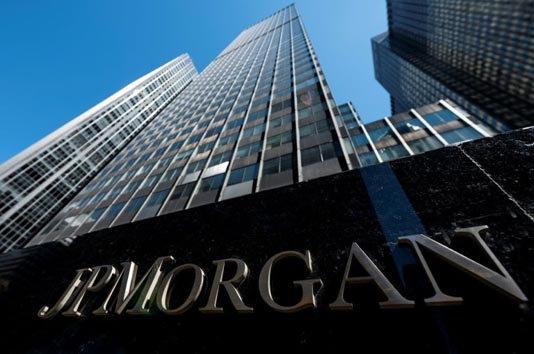NEW YORK, Sept 15, 2019 (BSS/AFP) – President Donald Trump’s attacks on
the US Federal Reserve make financial markets cringe, but his demand for zero
interest rates makes banks sweat.
As the Fed reverses course and is poised to cut the benchmark lending rate
a second time on Wednesday, large US banks have signaled they expect a bigger
hit to their bottom line.
Banks including JPMorgan Chase and Wells Fargo last week trimmed their
2019 forecasts for profits tied to interest rates as central banks around the
world loosen monetary policy in response to a weakening global growth
outlook.
Lower interest rates mean less profits on loans made by the banks,
especially if they have offered higher returns on deposits to attract
customers.
Moody’s warned in a report Thursday that lower interest rates would crimp
bank profitability in general and prompt more mergers in the industry.
JPMorgan Chase Chief Executive Jamie Dimon last week said the bank now
expects full-year net interest income of around $57 million — another
downgrade to the forecast that was $58 billion earlier in the year.
The Federal Reserve in July cut the key interest rate — which drives the
cost of all types of borrowing — for the first time in more than a decade,
after four rate increases last year.
The reversal came amid Trump’s bitter trade war with China which has
increased uncertainty and undermined the global economy, fueling a slowdown
in manufacturing and investment.
Trump has relentlessly demanded the Fed cut rates further to catch up to
moves by the European Central Bank and others, calling for zero or even
negative rates.
But most economists view that as highly unlikely and Dimon said he still
does not expect such a drastic move.
“I don’t think we’ll have zero rates in the United States,” Dimon said.
“We were thinking about how to be prepared for it, just in the normal course
of risk management.”
The possible responses include cost-cutting, as well as charging consumers
account fees.
– Overestimating the impact –
Yet some banking experts say the interplay between interest rates and bank
profits is overestimated in importance and more complex than is commonly
understood.
“The downturn in interest rates is manageable if we don’t have a
recession,” said Marty Mosby, who directs bank and equity strategist at
Vining Sparks, a broker-dealer.
And some banks already have put in place strategies to mitigate interest
rate risk.
History shows that while bank profits may fall incrementally after Fed
interest rate cuts, they do not crumble completely, said analyst Dick Bove,
who points to numerous instances where profits rose amid low interest rates.
“They are conglomerates and there are many ways of making money,” he said,
including charging premiums to corporate clients due to increased recession
risks.
Conversely, Bove said investors also make too much of the boost when rates
are rising, and said profits were diluted during the Fed’s recent rate-hike
cycle by large deposit payments.
The benchmark closely watched is “net interest income,” which essentially
reflects the difference in bank revenues tied to the loans it makes and
interest payments to depositors.
Wells Fargo also lowered its estimate for net interest income, projecting
a $1.8 billion drop in the second half of 2019 compared with the year-ago
period.
The bank could place more of its own assets in longer-run investment
vehicles if it expects rates to stay lower for longer, an outlook that
depends on “the perceived probability of recession,” said Wells Fargo Chief
Financial Officer John Shrewsberry.
“If you do go into some sort of deeper economic decline and rates are
going to remain low or go lower from here … you think about protecting the
downside,” he said. “I don’t think we’re quite there yet.”
Some banks pulled the plug on efforts to woo more deposits with higher
interest rates than those offered by competitors.
“We’ve dropped off the high rate screens,” said PNC Financial Services
Chairman William Demchak, adding that the company has decided to not “pick a
fight on deposits.”



